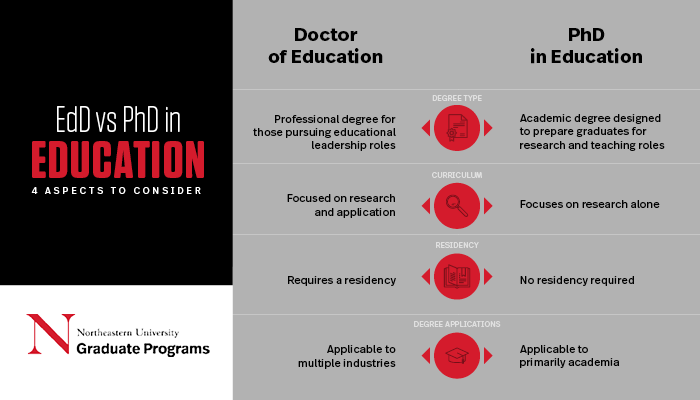Comparing EdD and PhD in Education: Exploring the Variances, Advantages and Beyond
Obtaining an advanced degree can be both a life achievement and a valuable tool for progressing in your career. It’s important, however, to understand the distinctions between different advanced degrees, such as the EdD and the PhD in education. Primarily, the EdD concentrates on applying knowledge practically, whereas the PhD is more research-centric. The Doctor of Education (EdD) is a degree tailored to professionals wishing to utilize educational leadership skills in a wide variety of industries. Depending on the institution, an EdD can take from two to five years to obtain, and it also requires a residency period. Graduates often have the opportunity to make positive changes within their organizations by influencing educational policy. The EdD prepares individuals for a diverse array of leadership roles.
On the other hand, the PhD in education qualifies you primarily for research and teaching positions. Part-time programs usually take around four years, with full-time programs taking three years, and unlike the EdD, the PhD doesn’t necessitate a residency. The variety of positions related to a PhD in education includes becoming an educational researcher or a faculty member within a college, or even an administrative role within an educational institute.
Essentially, the distinction between EdD and PhD comes down to your career goals and the type of degree you wish to pursue. Both degrees offer both traditional and online programs and lead to a myriad of career opportunities in the field of education.
